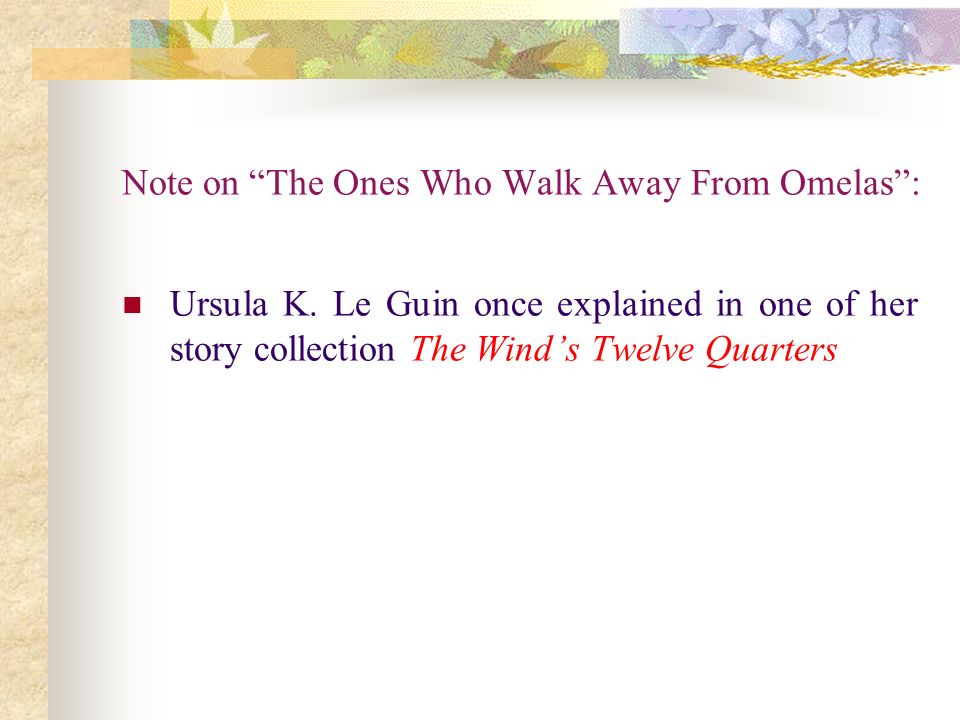

Hopefully, the discussion will contribute to our exploration of literature in relation to ethical justice and help us better understand the turn to ethics in the late twentieth century. I argue that, notwithstanding the justification for the injustice utilitarianism may help provide, the child’s exclusion from happiness is far from moral and is therefore unjustifiable. deontological theory put forward by Immanuel Kant and consequentialism proposed by Jeremy Bentham and John Stuart Mill) into discussion, this paper investigates (1) happiness as a universal right (2) morality and human right (3) conflicts between the dominant and the dominated regarding happiness and right (4) the morality and justice of those living in Omelas. Reading LeGuin’s “The Ones Who Walk Away from Omelas” by bringing relevant ethical theories (e.g. Metaphorically, the allegorical image of the child as a sufferer embodies the hierarchical oppositions between adults and children, employers and employees, the rich and the poor, the privileged and the underprivileged, to name but a few. In a nutshell, most people’s happiness is based on the deprivation of the child’s inherent right to be happy. However, this egalitarian scenario proves to be illusory in the seemingly utopian world in Le Guin’s “The Ones Who Walk Away from Omelas.” In this short fiction, the majority of people, mostly adults, enjoy happiness, but only on the condition that an unidentifiable child imprisoned in a dark room has to suffer for the benefits of the others.

It is universally acknowledged that the right to happiness should be equally shared by every individual on earth. Le Guin’s “The Ones Who Walk Away from Omelas” (1973) is a case in point. as evidenced in academic journals such as New Literary History and Literature and Philosophy), an increasing number of writers and critics re-directed their attention to substantial issues such as morality, identity, and the environment. However, with the emergence of “The Ethical Turn” around the 1980s (e.g. In the wake of these language-oriented approaches, literature and literary criticism had been dominated by language-related issues. In the first half of the twentieth century, literary study was greatly influenced by formalism, which was followed by the popularity of structuralism and post-structuralism in the ensuing decades.


 0 kommentar(er)
0 kommentar(er)
